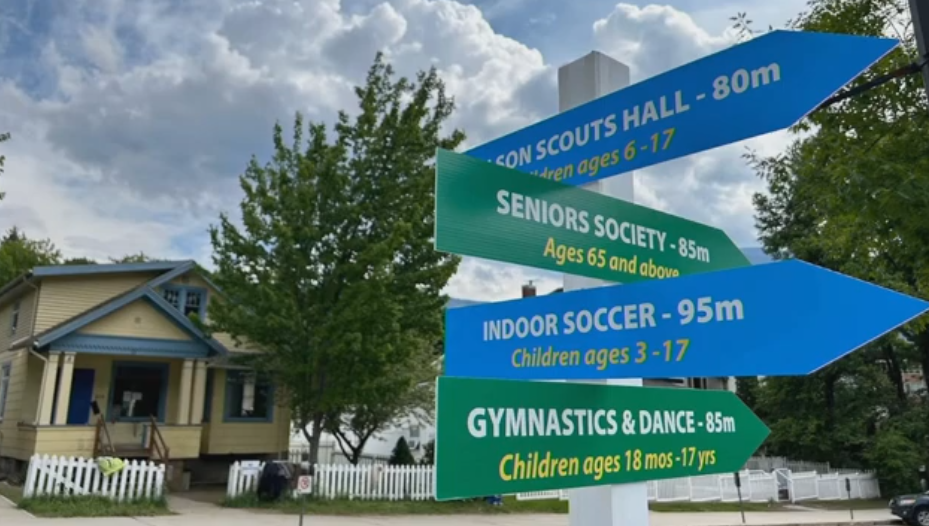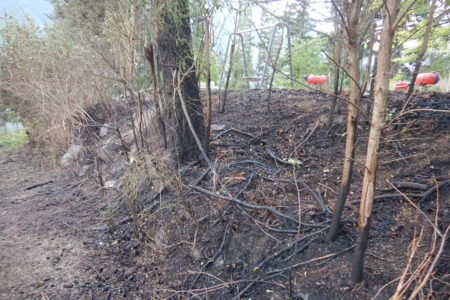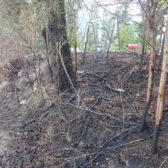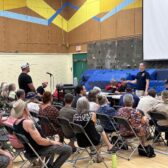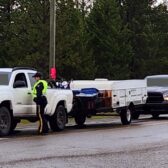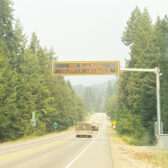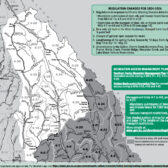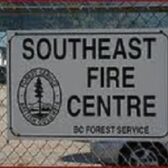Taking issue: Street culture issue comes to council with intent
The downtown Nelson neighbourhood is under siege, says a representative of the Nelson Neighbourhood Network, a downtown residents’ association.
Mike Stolte said in the last six months the street culture issue in the city’s downtown has worsened to the point where people don’t feel safe on the street or in their homes.
“I’ve never felt under siege, and the last … from about February to March and on, the neighbourhood has felt under siege,” he said recently at an Oct. 24 City council meeting. “What we heard a lot about in our neighbourhood is I am too scared to walk down the street.”
He said he has made one call to Nelson police in the 28 years he has lived in Nelson — the last decade on Vernon Street — but up to 20 in the last six months. As well, there have been 664 call outs for service — police, fire department, ambulance — in the last three years to three properties on Vernon Street.
Stolte said the downtown community was formed in April out of a feeling of disempowerment, arising out of the Interior Health Authority’s (IHA) lack of management of the Friendship Outreach Clubhouse facility — a mental health office — at 818 Vernon Street.
The Neighbourhood Network put pressure on IHA to halt the opening of the Clubhouse in early May when they announced it would be opening the location as a supervised inhalation site within the week.
“(T)hey were not seeming to be able to manage the facility,” Stolte said about the decision.
He pointed to the recent incident on the street — in which three people assaulted a man with a weapon — as an indication the situation is worsening.
“This isn’t just a homelessness issue, this is a criminality issue, so we have to look at this in a different way than we do,” he said.
The Neighbourhood Network has established some short-term goals (as of May, 2023), including ensuring “the untenable situation at The Clubhouse ends,” which had seen unsupervised gatherings of individuals with open drug dealing and criminality occurring.
Stolte said the network wants to ensure Interior Health carries out proper and thorough community and neighbourhood consultations prior to opening any further safe consumption sites in Nelson, as well as assisting the City of Nelson and Interior Health to identify possible safe consumption site locations.
Finally, through connection and information, the network plans to empower residents, businesses and organizations so that they know and can express their personal and property rights.
Triple N
The Nelson Neighbourhood Network (NNN) is a community organization dedicated to fostering a sense of community and neighbourly support with a specific focus on safety and respect for all.
“By fostering community connections, a strong, safe and thriving community is achievable.” Through shared learning and compassion, this group hopes to build awareness around the opioid crisis and better understand the impacts of decriminalization of illicit drug use.
The NNN aims to create a communication network for Nelson and area residents, businesses, and organizations on issues the neighbourhood is experiencing, using media and direct communication.
NNN strives to create respectful dialogue to work towards mitigation of issues felt by residents and business owners, including vandalism and theft of private property, decreased sense of personal safety, open drug use and drug dealings, and frequent violence and threatening behaviour in specific neighbourhoods.
Source: City of Nelson agenda, Oct. 20
On the street
ANKORS Nelson and Nelson Cares operate two overdose prevention sites in the 100 block of Baker Street and 500 block of Vernon Street, respectively. However, both are drug injection sites and not for inhalation.
Nelson continues to see a high number of deaths — a B.C. Coroner’s report revealed 11 people died in Nelson in 2022 due to toxic drug overdose.
More than seven years after the declaration of a public-health emergency, the toxic, unregulated drug supply continues to claim the lives of British Columbians in record numbers, according to preliminary reporting released by the B.C. Coroners Service.
Lisa Lapointe, chief coroner, said on the anniversary of the longest public-health emergency in B.C.’s history that more than 11,000 people have lost their lives due to the unregulated drug supply.
At least 374 deaths believed to be caused by toxic drugs were reported to the B.C. Coroners Service in February (177) and March (197), which equates to an average of 6.4 lives lost per day.
The 596 lives lost between January and March is the second-highest total ever recorded in the first three months of a calendar year, behind only 2022 (599 lives lost). The total number of deaths equates to a province-wide death rate of 44.1 deaths per 100,000 population.



